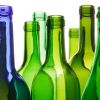Post Time:Sep 21,2010Classify:Industry NewsView:527
 The Glass Packaging Institute (GPI) is calling the first "complete and thorough" LCA of glass containers, conducted by sustainability consulting firm PE Americas a positive thing because it confirms what we´ve known all along - recycling is a good thing. PE Americas collected data from 105 furnaces in North America, representing 75% of North American glass container production.
The Glass Packaging Institute (GPI) is calling the first "complete and thorough" LCA of glass containers, conducted by sustainability consulting firm PE Americas a positive thing because it confirms what we´ve known all along - recycling is a good thing. PE Americas collected data from 105 furnaces in North America, representing 75% of North American glass container production.
According to their study, for every 10% increase in the amount of recycled glass, or cullet, that is used to make containers, CO2 emissions go down 5% and the amount of energy needed goes down 3%. Using recycled glass reduces impacts from extracting and processing raw materials as well as emissions from melting glass.
In 2007, the North American glass industry had an average of 23% post-consumer recycled content. GPI member companies plan to bring that to 50% by the end of 2013. Now this is valuable piece of information can be galvanized upon by many companies serious about CSR.
In Indiana, Verallia, a manufacturer and leading producer of glass containers for the food and beverage industries in the United States is working with a number of Broad Ripple bars and restaurants to improve the recycling and recovery rate of glass containers. About 18% of all beverages consumed in the United States each year happen in a bar, restaurant or hotel and glass containers make up about 80% of the container mix beverages consumed on premise. Salt Lake City has also boosted its glass recycling facilities recently.
One of the world´s largest producer of glass packaging, Owens-Illinois, has unveiled far-reaching plans to slash its carbon footprint over the next seven years following an extensive LCA. Part of its corporate initiatives include reducing bottle weights by nearly 30% and cutting energy usage by 8%.
Saint-Gobain Containers, a leading producer of glass containers for the food and beverage industries in the United States won awards for its packaging innovations last year. As part of its CSR initiatives, it has invested in developing eco-friendly glass bottles. The Bronco Wine Company´s Down Under by Crane Lake uses Saint-Gobain´s new eco-friendly bottles. The package reduces the average packaging carbon footprint by 25 % and is made with at least 50% recycled glass and a recycled label.
Fromage Blanc Handcrafted Fresh Spreadable Cheese from Traders Point Creamery offers a glass packaging again made with recycled glass sourced from Saint-Gobain. Frito-Lay is another food manufacturer that uses recycled glass to pack its Tostitos Chunky Salsa. Two of the largest breweries in America Anheuser-Busch InBev and MillerCoors are both committed to recycling. MillerCoors especially in interested in using recycled glass for their bottles.
Whole foods recently issues new sustainable packaging guidelines to their vendors. In their body care department, they have worked with vendors and agreed to include more glass and only use the highest quality post-consumer recycled content where possible.
The Greenglass company recycles glass into products like glasses, plates and other household items. Bedrock Industries commits to using 100% recycled glass and they use it to make tiles, art projects, glass dinnerware, crushed stone pathways and colored sand, and even sell it to be used as mosaic material or as a substrate in homemade green concrete countertops. Vetrazzo is another company that uses the same principle.
LCA, therefore is a powerful tool in boosting CSR efforts. The next time you put glass in the recycling bin, you know that recycling really does work.
Source: Glass Packaging InstituteAuthor: shangyi